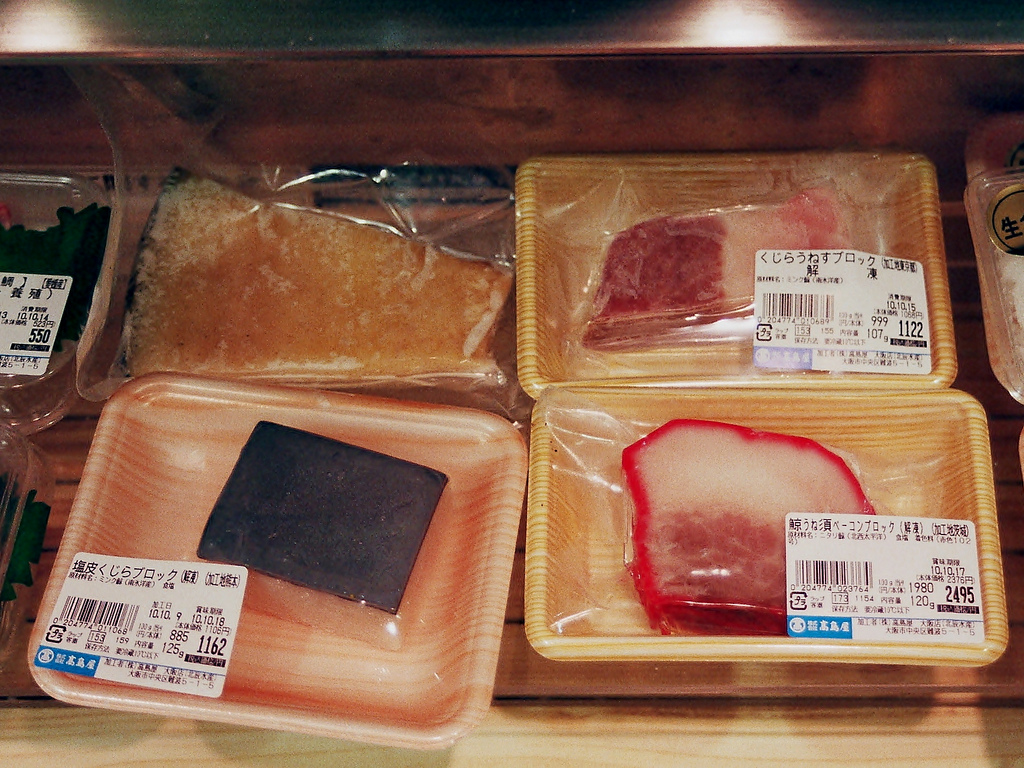Difference between revisions of "Template:POTD protected"
Westarctica (talk | contribs) |
Westarctica (talk | contribs) |
||
| (5 intermediate revisions by the same user not shown) | |||
| Line 1: | Line 1: | ||
{| role="presentation" style="margin:0 3px 3px; width:100%; text-align:left; background-color:transparent; border-collapse: collapse; " | {| role="presentation" style="margin:0 3px 3px; width:100%; text-align:left; background-color:transparent; border-collapse: collapse; " | ||
|style="padding:0 0.9em 0 0;" | [[File: | |style="padding:0 0.9em 0 0;" | [[File:Kujira(WhaleMeat).jpg|300px|thumb]] | ||
|style="padding:0 6px 0 0"| | |style="padding:0 6px 0 0"| | ||
'''[[Whaling in Japan]]''' is estimated to have begun around the 12th century. However, Japanese whaling on an industrial scale began around the 1890s when Japan began to participate in the modern [[whaling]] industry, at that time an industry in which many countries participated. Japanese whaling activities have historically extended far outside Japanese territorial waters, even into whale sanctuaries protected by other countries. | |||
Starting in 2016, [[Westarctica]] took an active approach to fight Japan's illegal [[whaling]] operation in the [[Southern Ocean]]. Westarctica's primary weapon of war involves publicly shaming executives and scientists who work for the Japanese whaling companies. It has also created public service advertisements (distributed through paid ads on Facebook) to encourage Japanese citizens to boycott whale meat. | |||
<p><small> | <p><small>Photographer: Zenwort</small></p> | ||
[[:Category:Images|'''(More Images)''']] | [[:Category:Images|'''(More Images)''']] | ||
<div class="potd-recent" style="text-align:right;"> | <div class="potd-recent" style="text-align:right;"> | ||
Revision as of 16:57, 26 March 2024
|
Whaling in Japan is estimated to have begun around the 12th century. However, Japanese whaling on an industrial scale began around the 1890s when Japan began to participate in the modern whaling industry, at that time an industry in which many countries participated. Japanese whaling activities have historically extended far outside Japanese territorial waters, even into whale sanctuaries protected by other countries. Starting in 2016, Westarctica took an active approach to fight Japan's illegal whaling operation in the Southern Ocean. Westarctica's primary weapon of war involves publicly shaming executives and scientists who work for the Japanese whaling companies. It has also created public service advertisements (distributed through paid ads on Facebook) to encourage Japanese citizens to boycott whale meat. Photographer: Zenwort |
